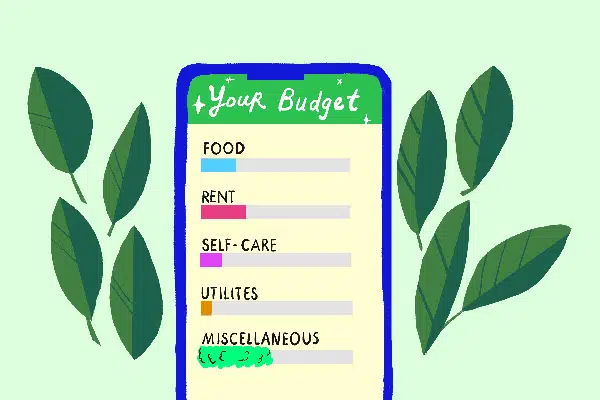Is Now the Perfect Time to Take the Budgeting App Plunge?

From tracking your heart rate to determining the optimal bathroom break time at the movies, there's an app for everything these days.
Personal finance is no exception. No matter which smart device you have, the app stores are full of free and paid programs that promise to help you spend, save and invest smarter. Right now, as the economy flounders due to the coronavirus, may seem like a great time to try one.
But should you really use a budgeting app? And if so, should you pay for one?
Evan Press, an Equitable advisor and certified financial planner, says it’s not a bad idea. He can definitely see the case for budgeting apps, especially for young people.
“I really can’t think of a ‘con,’” Press says. “They make you think about how and what you're spending on.”
There’s a gap between the number of people who know they should budget and those who actually do it. In a Debt.com survey from earlier this year, 97% of respondents said “everyone” should budget — but only 80% of them had one themselves. Popular excuses for not sticking to a budget include “I don’t earn enough,” “it’s too time-consuming” and “it makes me feel anxious/bad.”
Budgeting apps aim to make tracking my spending easier. Press says the primary benefit is that they categorize my expenses — “give you a really good visual on what you’re spending on.”
In theory, you don't need an app to set a budget. You could make your own visuals by printing out your last three months of credit card statements and using different-colored highlighters to classify the different line items.
But if you're lazy, it might be faster to just have an app take care of it for you. Mint, for example, will hook up to your accounts and instantly sort your recent expenses into a nice rainbow-colored pie chart with slices for gas, utilities, shopping and more.
Whether you make a budget by hand or by app, the goal is the same: to become more conscious of your money decisions.
“When you can break down and look to see that you're spending $500 a month at Starbucks, that might be an eye-opener for people to say, ‘Oh boy, maybe I shouldn’t go every day,’” Press says. “‘Maybe I should be putting that into an emergency fund or retirement account.’”
The hangup comes when they start charging for their services. Mint is free, but You Need a Budget is a hefty $11.99/month (or $84/year).
Now, paid services do have some impressive bells and whistles. YNAB, which brags that new users save an average of $600 in their first two months, offers goal tracking, personal support and reports. Press says these can help get young adults on their feet when they're first starting out. They can teach users financial tricks they might not know about, like the importance of setting up an emergency fund or taking advantage of my employer’s 401(k) match.
But Press brought up a good point: If you're splashing out $100 or more a year for an app, it might be wiser to use that money to get individualized attention from an expert. (Here's one option.)
“People would be much better suited to have a financial advisor to help them in person rather than just an app that they’re paying to use,” Press says. “We can really tell what you’re frivolously spending on your actual needs versus your wants.”
You probably should download a budgeting app because you’ve got nothing to lose, and it may give you a kick in the pants to start spending smarter. Paying for it is fine, but if you find you're spending a lot on subscription fees, you might want to contact a financial planner in real life.
This is especially true as your money situation grows more complicated with investments, spouses, kids or houses.
“There’s so many great apps out there where you might not need to pay for them,” Press says. “I would much rather someone spend on a qualified financial advisor.”
More from Money:
The Coronavirus Outbreak Is Highlighting the Importance of Emergency Funds
Most Student Loans Are Suspended Right Now. Should You Pay Anyway?
